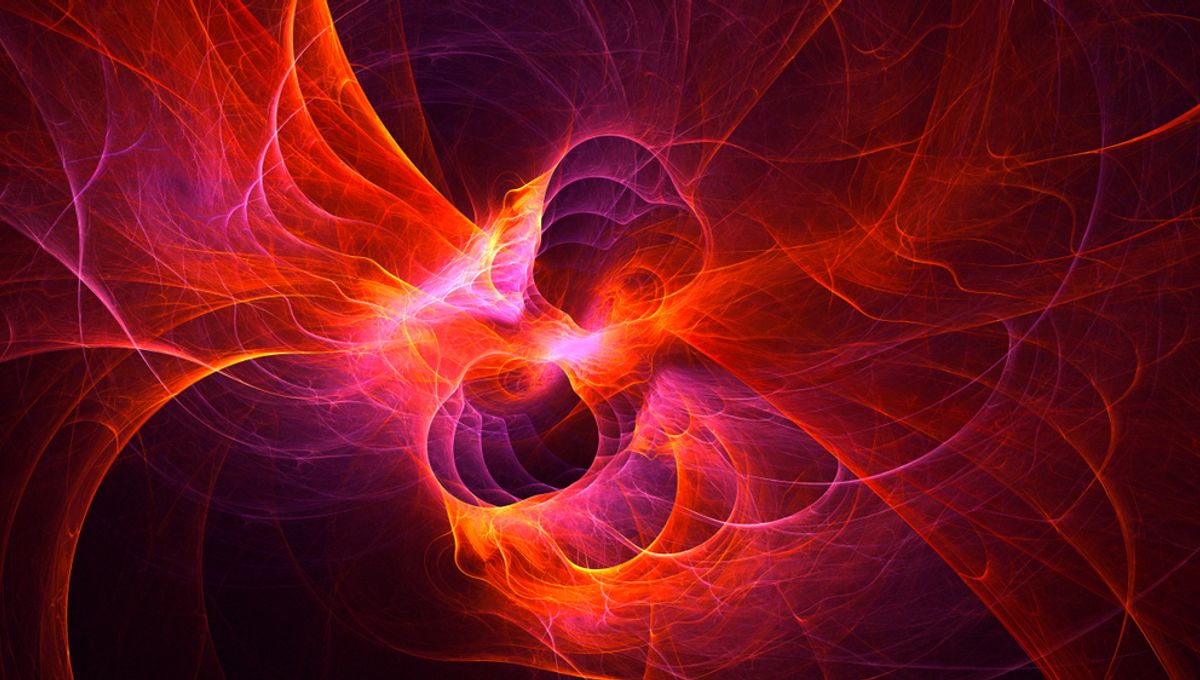
There is a lot of speculation about the end of the universe. Humans love a good ending after all. We know that the universe started with the Big Bang and it has been going for almost 14 billion years. But how the curtain call of the cosmos occurs is not certain yet. There are, of course, hypothetical scenarios: the universe might continue to expand and cool down until it reaches absolute zero, or it might collapse back onto itself in the so-called Big Crunch. Among the alternatives to these two leading theories is “vacuum decay”, and it is spectacular – in an end-of-everything kind of way.
While the heat death hypothesis has the end slowly coming and the Big Crunch sees a reversal of the universe’s expansion at some point in the future, the vacuum decay requires that one spot of the universe suddenly transforms into something else. And that would be very bad news.
There is a field that spreads across the universe called the Higgs field. Interaction between this field and particles is what gives the particles mass. A quantum field is said to be in its vacuum state if it can’t lose any energy but we do not know if that’s true for the Higgs field, so it’s possible that the field is in a false vacuum at some point in the future. Picture the energy like a mountain. The lowest possible energy is a valley but as the field rolled down the slopes it might have encountered a small valley on the side of that mountain and got stuck there.
In regular physics, a valley is a valley. So a stable point is stable. But in quantum mechanics, things are a bit more complicated. Things can spontaneously move into the lowest possible energy field. If that were to happen, the Higgs field will change there and the new, more stable field will spread, changing the very physics of the universe and destroying everything that uses the one we are familiar with in its path.
“That might be possible, it might not, we’re not sure. But the way to figure that out is to understand how the Higgs Field changed in the early universe because we know that it did,” Dr Katie Mack, the Hawking Chair in Cosmology and Science Communication at the Perimeter Institute, told IFLScience in the “How will the universe end?” episode of our podcast, The Big Questions (season 3 coming soon!).
“So, that’s another case where trying to understand the beginning is going to potentially tell us something about the end.”
Particle physics experiments, such as those at the Large Hadron Collider, are getting more and more information about the Higgs boson, which is the particle associated with the Higgs field. Understanding this particle better doesn’t just help particle physics but also our understanding of the Big Bang and how the universe might end.
“Vacuum decay is just such a fascinating possibility because it involves something that happens on the quantum level, sub-atomic physics,” Dr Mack, whose book The End of Everything is all about this, told IFLScience. “Basically, there is a quantum tunneling event, a particle goes from one place to another in some sense and when that happens it triggers a cascade that destroys the cosmos. I think that’s just such a fascinating possibility where something that’s so tiny and so obscure and so unpredictable as a quantum event could destroy macroscopic objects and galaxies and the universe.”
The expansion of this bubble would happen at almost the speed of light, so it is not something that you could predict or prepare for. If vacuum decay is indeed the right scenario, you don’t have to worry that it might start any day now suddenly in, say, Zanesville, Ohio. Cosmologists think that it won’t happen between 10100 years… and that is a very, very long time.
Source Link: The Most Spectacular Way The Universe Might End? Meet "Vacuum Decay”